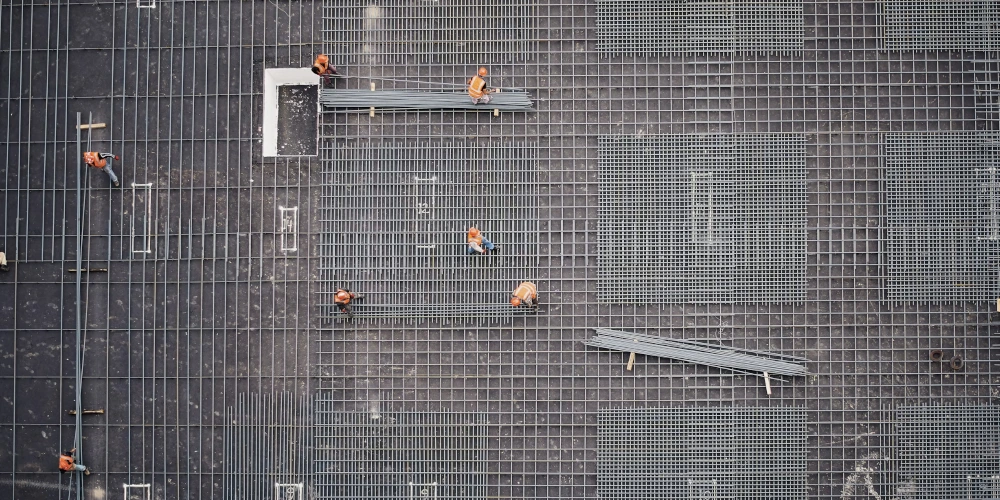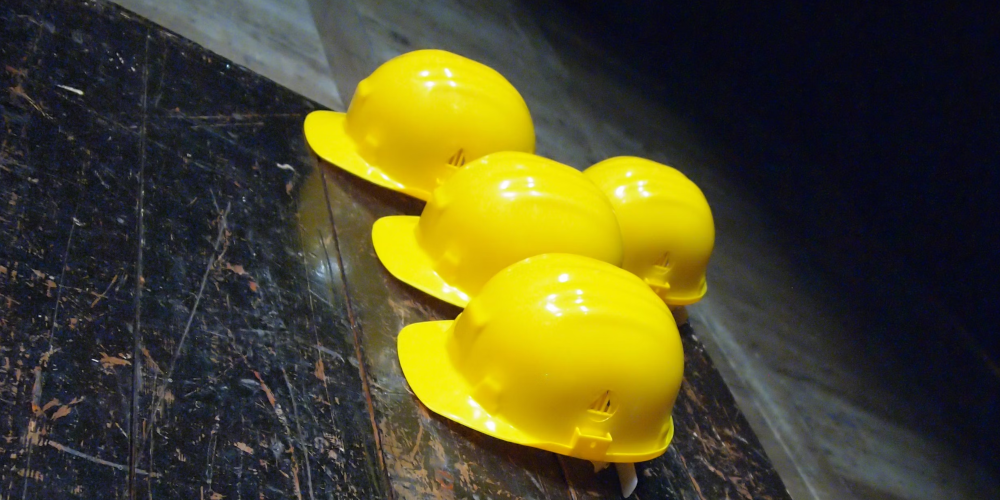
The construction industry in 2025 offers a wealth of opportunities and benefits for those seeking a rewarding and stable career. As the sector continues to grow, driven by advancements in technology, infrastructure development, and an increasing demand for housing and commercial spaces, working in construction has never been more appealing. Whether you are looking to build your skill set, earn competitive wages, or take on exciting challenges, the benefits of working in construction are plentiful.
1. Job Security and Stability

Construction is a fundamental industry, and as demand for new infrastructure, housing, and urban development increases, so too does the need for skilled workers. The ongoing growth in construction projects, including commercial, residential, and renewable energy initiatives, provides long-term job security. As the economy continues to recover and evolve, construction workers are in high demand, ensuring that those who choose a career in the industry can enjoy consistent work opportunities.
2. Competitive Salaries and Benefits
One of the biggest advantages of working in construction is the potential to earn a competitive salary. Many construction roles offer attractive wages that increase as you gain experience and expertise. With the industry’s push towards skilled professionals, positions in areas such as project management, civil engineering, and design also command high salaries. Additionally, many construction companies offer comprehensive benefits packages that include health insurance, pension plans, and performance bonuses, making it a financially rewarding career choice.
3. Diverse Career Paths

The construction industry is incredibly diverse, offering a wide range of career options across various disciplines. Whether you’re interested in hands-on roles such as carpentry, plumbing, or electrical work, or prefer to take on managerial and technical positions such as project management, surveying, or architecture, construction provides a wealth of career pathways. This variety allows individuals to find their niche and pursue long-term professional development in their chosen field.
4. Opportunities for Advancement and Training
Working in construction offers ample opportunities for career advancement. Many companies prioritise internal promotions, and the nature of the industry means that workers can progress quickly by gaining experience and additional qualifications. Apprenticeships, on-the-job training, and professional development programs are widely available, allowing employees to continually improve their skills and move up the career ladder. This provides a clear path for career growth and development.
5. Hands-On, Rewarding Work

Construction is a hands-on industry, and one of the most satisfying aspects is the opportunity to see tangible results from your efforts. Whether you’re involved in building a new home, constructing bridges, or improving infrastructure, the work you do leaves a lasting legacy. Seeing a project come to life from start to finish is incredibly rewarding and offers a sense of pride that is unique to the construction industry.
6. Work in a Dynamic Environment
Every construction project is different, which means that no two days are the same. The dynamic environment of construction keeps workers engaged and challenged. Whether you’re working outdoors, in a team environment, or using cutting-edge technology to improve building processes, the variety of tasks and projects keeps things interesting. If you enjoy problem-solving, adaptability, and working in fast-paced environments, construction provides the perfect setting.
7. Contributing to Society
Working in construction means you’re contributing directly to the development of infrastructure that improves people’s lives. From building homes for families to constructing vital public infrastructure like schools, hospitals, and transport systems, the work you do has a lasting impact on communities. In 2025, with a focus on sustainability and eco-friendly building methods, construction professionals are playing a key role in shaping the future of our built environment.
8. Technological Advancements

The construction industry is embracing new technologies that are revolutionising the way work is done. From 3D printing and drones to AI-driven design and augmented reality for project planning, technology is enhancing efficiency, safety, and precision in construction projects. Workers who stay ahead of these technological trends can gain a competitive edge, acquire new skills, and be at the forefront of an evolving industry.
9. Work-Life Balance
Despite its reputation for hard work, construction offers an excellent work-life balance, particularly with the rise of flexible working hours and the growing use of digital tools that allow for remote project management. With a variety of roles available, workers can choose positions that align with their personal schedules, allowing for greater flexibility between work and life responsibilities.
10. Sustainability and Green Building

In 2025, the construction industry will be increasingly focused on sustainability. Green building practices, energy-efficient designs, and eco-friendly materials are becoming the norm rather than the exception. For those passionate about environmental issues, a career in construction offers the opportunity to contribute to a greener, more sustainable future by working on projects that prioritise sustainability and environmental responsibility.
As the construction industry continues to evolve in 2025, the benefits of working in this sector are more compelling than ever. Whether you’re drawn to the stability, competitive salaries, career advancement, or the satisfaction of building something meaningful, construction offers diverse opportunities for personal and professional growth. If you’re ready to take the next step in your career, search for construction jobs on the Hunterskill website and fill out our digital candidate registration form. Join the growing construction workforce and experience the rewards it has to offer.